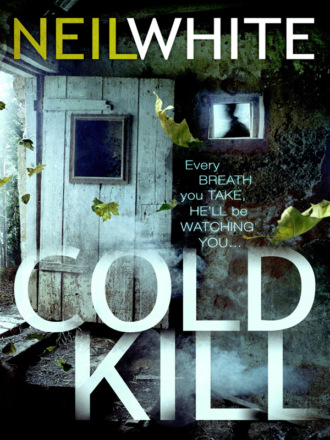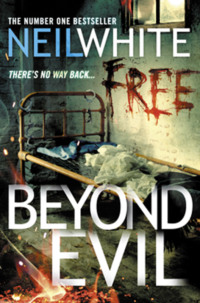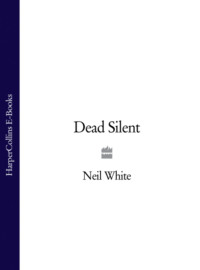
Полная версия
COLD KILL
He looked back at the security guards by the entrance, old men in crisp white shirts, security wands in their hands. They were already counting the minutes until lunch. So this was it? Jack Garrett, hotshot reporter. He sighed. A quiet court meant nothing to report.
The duty solicitor room – a small square room designed for client interviews usually filled with bored lawyers moaning about how they couldn’t make a fortune anymore – was slightly busier.
He put his head in to ask if anyone had a case worth writing up. There was a general shake of the head and then it went quiet. They spoke to him when they wanted publicity or an audience for their wit, but Jack would never be part of the lawyer-clique, he knew that. His old denims and long blue shirt didn’t fit in with the dark pinstripes. Some were doing crosswords, photocopies from the national papers that got passed around at court. Sam Nixon was there, one of the main players, who practised from a small office over a copy shop, where tattered sofas and plastic plants served as a reception waiting area.
‘Nothing at all for you, Sam?’
He shook his head. ‘Times are lean, Jack.’
‘I’ve just been up to a murder scene,’ Jack said. ‘They’ve found another girl.’ Everyone looked up at that. ‘Maybe you’ll get a slice of that when they catch the killer?’
‘You see, us lawyers are not that bad,’ Sam said, waving his hand at the others in the room. ‘We want the killer to be caught, not stay free.’
‘That bad?’
Sam smiled. ‘It might keep me in business for another few months.’
‘You’re all heart,’ Jack said, and then nodded at the prosecutor, who was playing with a touchscreen phone. ‘And it might generate some excitement from him.’
‘I doubt it. I had to blow the dust from him before,’ Sam said.
The prosecutor looked up and raised his eyebrows, just greying on the fringes, to match the silver streaks along his temples. ‘My activity is all deep,’ he said, grinning. ‘That’s the trouble with defence lawyers: they’re all show and no substance.’ Then he pointed towards the door as the sound of bold footsteps clicking rhythmically on the tiles got louder and louder. ‘Just to prove my point.’
Jack put his head back out of the door and knew who it was before he even saw him: David Hoyle.
He was different from the rest of the defence lawyers. Most of the lawyers in Blackley were sons of old names, the firms passed through the generations, sometimes split up and married off to other firms. Hoyle was an outsider. He had been sent to Blackley to head up the new branch of Freshwaters, a Manchester firm trying to establish a foothold away from the big city. No one had expected it, and Hoyle had just arrived at court one day, in a suit with broad pinstripes and a swagger that no one seemed to think he had earned.
The other lawyers didn’t like him, because he made bold promises that made clients shift loyalties. Low-level crooks usually wanted nothing more than someone to shout on their behalf, and David Hoyle did that. And he didn’t work out of an office. Freshwaters had premises, but it was really just somewhere for Hoyle to park his Mercedes. He ran his files from home, did his own typing, and visited his clients on their own turf.
His client trotted behind him, a red-faced man in a grey suit, his stomach pushing out the buttons, his shoes shiny underneath the pressed hems of his trousers. He wasn’t the usual court customer. Suddenly, Hoyle turned to smile and shake hands with his client, but from the look of regret Hoyle gave, Jack guessed that things hadn’t gone his way.
There was the scent of a story, a disgraced professional always gets a column, and so he checked his pocket for his camera; get the picture first, the story later, because the shame sold better if there was a face a neighbour might recognise. It was the part of the job that used to make Jack most uncomfortable, but he’d learned a long time ago that he had to write stories that people wanted to read, and having a troubled conscience didn’t help sell a newspaper.
Jack watched them walk past and then headed after them as they made their way to the steps and then outside.
Hoyle had stopped at the bottom to straighten his tie and fix his hair, using the glass panel in a door as a mirror, before lighting a cigarette.
‘I’m too good for this place,’ he said to his reflection, and then turned round and blew smoke towards Jack, who had appeared over his shoulder. ‘Mr Journo, you’re looking twitchy.’
‘Where’s your client?’ Jack said.
Hoyle took another long pull on his cigarette. ‘Now, what do you want with that poor man?’ he said, wagging a finger.
‘When there isn’t much going on, I have to chase what I can.’
‘Didn’t you have bigger ambition than that when you first started out?’ Hoyle said. ‘Dreams of travel, interviewing presidents, uncovering conspiracies?’
‘What do you mean?’
He grinned, smoke seeping out between his teeth. ‘This?’ he said, and he pointed up the stairs. ‘Was this your plan when you left reporting school, or wherever you people graduate from, trying to shame people for stepping on the wrong side of the line sometimes?’
‘It’s not like that,’ Jack said, bristling.
‘So what is it like?’
‘It’s the freedom of the press,’ Jack said. ‘It’s about letting the wider community know what is going on around them, where the threats lie. Over the years, it paints the town’s history.’
Hoyle raised his eyebrows. ‘If that makes you feel better.’
‘What do you mean?’
‘You flatter yourself, cover yourself in glory talk,’ Hoyle said. ‘It’s all bullshit, this freedom of the press stuff.’
‘And this was your life plan?’ Jack retorted. ‘Did you always dream of giving speeches to a bench of bored greengrocers in a backwater Lancashire town? Why are you here? Did it not work out in the big city?’
‘We’re both parasites,’ Hoyle said, his voice low, stepping closer to Jack. ‘Necessary evils, that’s all. A fair justice system is essential to our freedoms. That’s right, isn’t it, Mr Journo? Like a free press.’ He scoffed. ‘But that isn’t why I do it. I like the game, and if that means I help guilty people get away with bad things, so be it, because it is all a game, you know that. And if the odds are stacked against me, I’ve got to make sure that they don’t get the punishment they deserve, so they can skip out of court, laughing at the system. You like it that way too, because it means that you can write it up as an outrage. But I like what I do, because I get off on the fight, the challenge. What about you, Mr Journo?’
Jack rolled his eyes. ‘Do all defence lawyers think like you?’
Hoyle laughed. ‘Deep down, yes, but some are like you and cloak it in bullshit. All the stuff about protecting our freedoms? That is just crap, because it’s a dirty game, and you don’t pick your fight, your client picks it for you. It’s time for you to be honest with yourself now, and stop disguising your courtroom tales as freedom. It’s just gossip, tales over the garden fence, revelling in someone else’s downfall. God help us if the world is ever as bad as the papers make out.’
‘I can’t believe I’m having a debate about morals with a lawyer,’ Jack said.
Hoyle checked his watch and then winked, before flicking his cigarette stub onto the pavement outside. ‘You’re not,’ he said, with a grin. ‘You’ve been delayed. My client should be in his car by now, and well away from your camera lens.’
Jack sighed. Didn’t Hoyle ever stop playing the game?
‘You need to stop wasting your time in there,’ Hoyle said, pointing back up the court steps. ‘Go after a proper story.’
‘Give me one to think about.’
Hoyle smiled. ‘A good story always involves me,’ he said, and then patted Jack on the shoulder. ‘Next time, ask my client the questions, not me, because I’ll just protect my client every time,’ and then he set off, walking away from the court, a brown leather bag thrown over his shoulder.
Jack leaned against the door frame and watched him go. It was characters like Hoyle who made the courtroom a livelier place, made the day less tedious. And despite Hoyle’s brashness he knew Hoyle was right, he did need to kick-start his life again, instead of trying to get by on inquests and court stories.
Dolby had used the recession as an excuse to cut costs and streamline the paper, except that Jack knew it wasn’t just that. Newspapers were changing, with people going to the internet for the news, and so there was no longer the luxury of a cadre of staff reporters, with Jack providing the freelance stories. Dolby had just two full-time reporters left. He used freelance for the rest, and because there was always some eager new hack ready to provide the stories, Jack wrote whatever Dolby wanted. He hadn’t written anything of his own choosing for nearly a year now. It wasn’t why he went freelance, but he knew that his career was gone once Dolby looked elsewhere for material. He had thought about writing a book, but on the days he’d set aside for it, his fingers had just hovered over the keys and he’d written nothing.
Jack knew that the problem was deeper than just Dolby though. The court routine had become too comfortable, because going for the big stories had become too dangerous. Criminals were bad people, it came with the job description, but reporters didn’t come with the protection that police or lawyers enjoyed, because they weren’t players in the game. They were on the sidelines – observing, annoying, interfering. He was sick of the risk and had been hurt – badly – a couple of times.
Jack smiled ruefully as Hoyle disappeared from view, and then his mind drifted back to the murder scene. He thought about the victim from a few weeks earlier. The two deaths hadn’t been officially linked yet, but he ought to make the connection in his story, so that once it was confirmed, the story would be ready to run. An update from the first victim’s family would be a good way to start.
He glanced back up the court steps. There was nothing going on there, and so he walked back to the Stag, parked further along the road. It was time to concentrate on the murder story.
Конец ознакомительного фрагмента.
Текст предоставлен ООО «ЛитРес».
Прочитайте эту книгу целиком, купив полную легальную версию на ЛитРес.
Безопасно оплатить книгу можно банковской картой Visa, MasterCard, Maestro, со счета мобильного телефона, с платежного терминала, в салоне МТС или Связной, через PayPal, WebMoney, Яндекс.Деньги, QIWI Кошелек, бонусными картами или другим удобным Вам способом.







